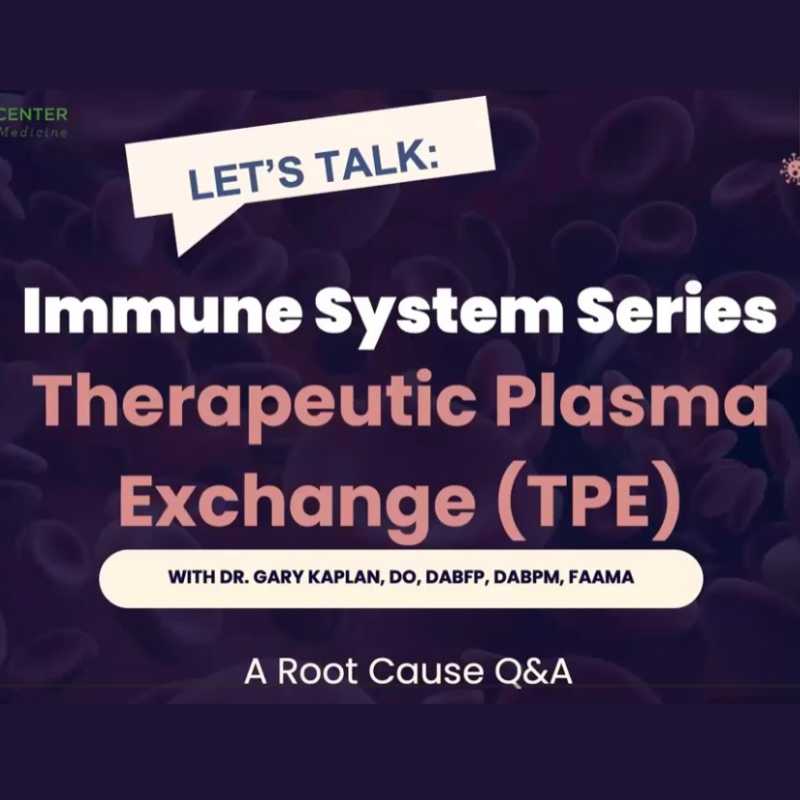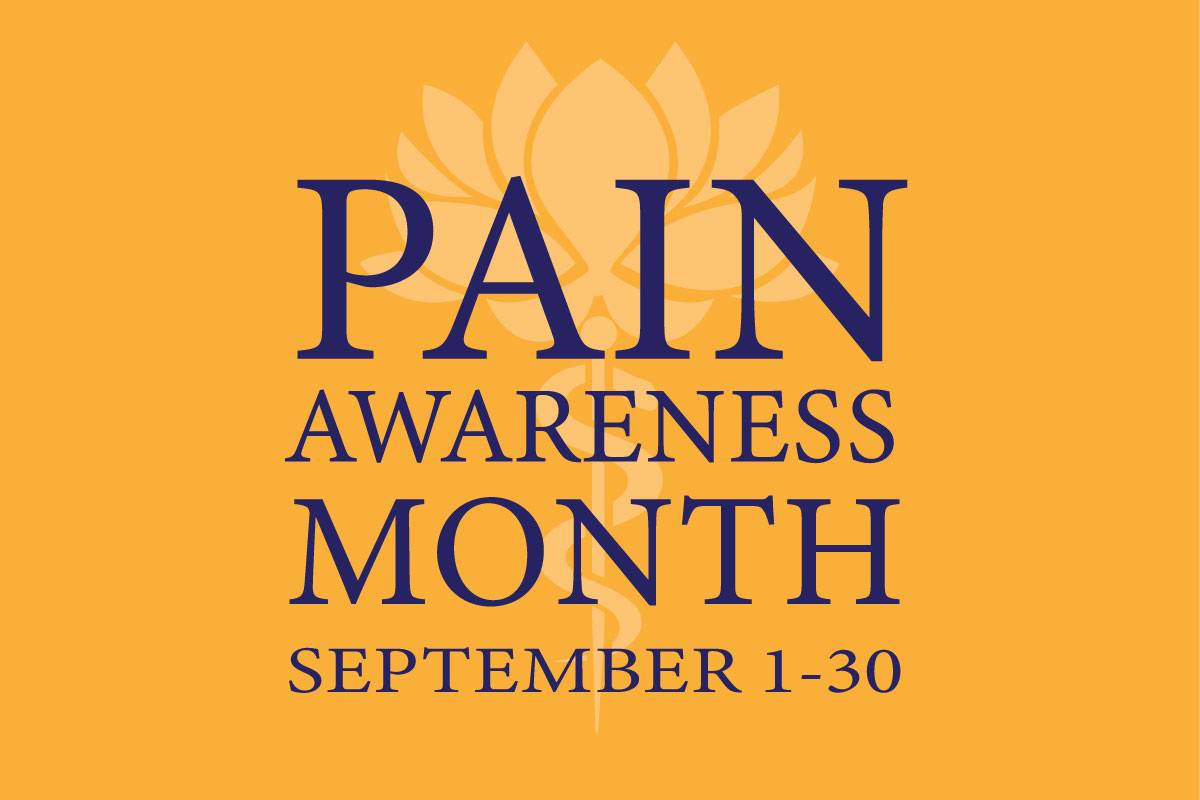
5 Ways We Can Keep Your Immune System Strong
December 10, 2025/by Kaplan Center
Want to Take Your Workout to the Next Level Next Year? These Tips Can Help
December 8, 2025/by Kaplan Center
Dr. Kaplan’s Dos and Don’ts of the Holiday Season
December 3, 2025/by Kaplan Center
Let’s Talk Webinar – A Root Cause Q&A
December 2, 2025/by Kaplan Center
Navigating Holiday Meals with Gut Issues: Simple Tips for a Comfortable Season
December 1, 2025/by Chardonée Donald, MS, CBHS, CHN, CNS, LDN
Craniosacral Therapy for TMJ | Say Goodbye to the Daily Grind
November 19, 2025/by Patricia Alomar, M.S., P.T.
From Compassionate Care to Personal Healing: A Letter to My Patients
November 18, 2025/by Kaplan Center
8 Steps to a Healthier Gut—and a Longer, Healthier Life
November 18, 2025/by Kaplan Center
Mid-Life Irritability & Fatigue Improved by Hormonal Balancing
November 13, 2025/by Lisa Lilienfield, MD
From Challenges to Change: Dr. Kaplan on Healthcare’s Biggest Challenges
October 29, 2025/by Kaplan Center
Overlooked Dangers of Mold Exposure and How to Stay Safe – Dr. Kaplan Talks to WUSA9
October 27, 2025/by Kaplan Center
Let’s ‘Fall’ Into Wellness: A Nutritionist-Approved Immune-Boosting Recipe for Cold and Flu Season
October 13, 2025/by Chardonée Donald, MS, CBHS, CHN, CNS, LDN
PANS/PANDAS – When Sudden Symptoms Signal Something More
October 9, 2025/by Kaplan Center
Beating Burnout, A Nutritionist’s Perspective
October 1, 2025/by Chardonée Donald, MS, CBHS, CHN, CNS, LDN
3 Things That Can Happen After Stopping GLP-1s
September 11, 2025/by Chardonée Donald, MS, CBHS, CHN, CNS, LDN
What Families Need to Know About COVID and Flu Season
September 3, 2025/by Kaplan Center
September is Pain Awareness Month
September 1, 2025/by Kaplan Center
Dr. Kaplan Spoke to Northern Virginia Magazine About COVID, Flu, and Immunity — Here’s What You Should Know
August 14, 2025/by Kaplan Center
“Why Do I Feel Like Crap?”: The Overlap Between Long COVID and Perimenopause
July 30, 2025/by Kaplan Center
Why People Are Turning to EMDR (and Why You Might Want to Too)
July 23, 2025/by Kaplan CenterAre you looking to improve your overall wellness?
Personalized care you can trust.
Our integrative, non-surgical treatment approach is highly successful in maintaining wellness and also treating chronic pain and illness. For more than 30 years, we have delivered superior, cutting-edge health care in the Washington, DC area.
QuickLinks
Contact Information
Tel: 703-532-4892
Fax: 703-237-3105
6829 Elm Street, Suite 300
McLean, Virginia 22101
Map It
Hours of Operation
Mon – Thu : 8 am – 5 pm, ET
Fri : 8 am – 12 pm, ET
How Can I Stay Active with Fibromyalgia Without Overdoing It?
/in Conditions, Wellness/by Kaplan CenterLiving with fibromyalgia can present unique challenges, especially when it comes to staying active. It is not uncommon for people with fibromyalgia to feel nervous about exercising because they are scared about making the pain worse. However, in reality, exercise can help those living with fibromyalgia.
Research shows that individuals with fibromyalgia who exercise routinely can enjoy the following benefits:
If you have fibromyalgia, you can safely participate in regular, appropriate exercise without worsening your symptoms. The trick is finding the right balance between staying active and not overdoing it.
Here are a few tips on how to stay active with fibromyalgia safely and effectively.
1 – Choose Suitable Exercises
Not all exercises are created equal, especially when it comes to fibromyalgia. Consider low-impact activities that are gentle on the joints and muscles. This includes activities such as walking, swimming or water aerobics, or yoga. These exercises can improve cardiovascular health, flexibility and strength without putting excessive strain on your body. They also reflect exercises that can be started for those at any fitness level.
2 – Build Up Your Exercise Tolerance
With any exercise, the goal is to start slowly and gradually increase the intensity and duration of your workouts. For example, begin with short sessions of 10-15 minutes a few times a week. Gradually extend the duration of exercise as your tolerance improves. Listen to your body throughout this process and don’t push yourself too hard, especially when symptoms are flaring up.
3 – Exercise with Breaks
Break up your exercise routine into shorter segments with rest periods in between. For example, instead of trying to complete a 30-minute walk at one time, divide it into three 10-minute walks spread throughout the day. This approach can help prevent overexertion, help you incorporate exercise into your daily routine, and minimize post-exercise fatigue.
4 – Consult with a Physical Therapist
There is great utility in speaking to a physical therapist before starting any new exercise routine. A physical therapist can teach you proper techniques to prevent injury and optimize the benefits of exercise, and they can give you a program to do at home to regain your strength and flexibility. Our physical therapists specialize in working with fibromyalgia patients and can provide personalized exercise recommendations based on your needs and limitations.
5 – Prioritize Rest and Recovery
Rest is just as important as exercise, especially for individuals with fibromyalgia. Allow yourself adequate time to rest and recover between workouts to prevent burnout and avoid triggering flare-ups.
6 – Stay Hydrated While Exercising
Proper hydration is essential during all forms of exercise. Drink plenty of water before, during and after exercise to stay hydrated and replace fluids lost through sweating. You should also fuel your body with nutritious foods that provide sustained energy and essential nutrients.
7 – Incorporate Exercise into Your Daily Routine (if possible)
Find creative ways to incorporate physical activity into your daily life, even on busy days. Consider taking the stairs instead of the elevator, park farther away from your destination to take extra steps, or do gentle stretches while watching TV. Integrating exercise into your routine makes it more manageable and sustainable over the long term.
8 – Monitor Progress and Adjust Accordingly
This point is crucial if you’re using exercise to reduce the severity of your symptoms. Keep track of your exercise routine, symptoms and progress over time. This will help you identify patterns and make informed adjustments as needed. Use a journal or fitness app to record your workouts, how you feel before and after exercise and any changes in symptoms. Use this information to help identify which exercises are most beneficial and track improvements as you go along. It can also be used as a motivation and goal-setting tool!
9 – Listen to Your Body
This is the most important point. Pay attention to how different activities affect your symptoms and adjust your exercise routine accordingly. If a particular exercise or movement exacerbates pain or fatigue, modify it or try something else. Remember that it’s okay to take rest days when needed and to prioritize self-care.
Incorporating exercise into your life with fibromyalgia can be empowering and beneficial. If you have fibromyalgia and would like help in incorporating physical activity in your life, please give us a call, we can help you. We’ll create a program that considers your goals and your limitations that will help restore balance to your nervous system and improve your symptoms.
References
Exercise and Fibromyalgia
FREE CONSUMER GUIDE
We think you’ll really like our guide – 18 Things You Should Know Before Selecting a Doctor to Treat Your Fibromyalgia Syndrome.
To receive your copy instantly, click here and fill in the form!
Adrenal Fatigue Could Be Why You’re So Tired
/in Conditions, Hormone Health, Wellness/by Kaplan CenterThe adrenals are two small glands located above your kidneys. Despite their small size, they carry a lot of weight in making sure your body is functioning properly. These two small glands are responsible for secreting hormones that help regulate your metabolism, immune system, blood pressure, and your body’s response to stress.
How the adrenals work
When high-stress situations arise, your body’s innate “alarm” system, which helps adapt to the situation at hand, is triggered. The hypothalamus, an area in the brain that produces hormones, sends a signal to the adrenal glands to immediately release the stress hormones adrenaline, cortisol, and norepinephrine. This release generates a surge of energy which causes your heart to beat faster and your blood pressure to go up. This is called a fight-or-flight response.
Periods of chronic stress, whether physical, emotional, or psychological, cause an overproduction of these stress hormones, especially cortisol and adrenaline. Eventually, the adrenal glands are unable to keep up the production of the hormones that are being signaled and this is referred to as adrenal fatigue.
Functional Medicine Approach to Diagnosing Adrenal Fatigue
With a functional medicine approach, we dig deep into the root causes of your symptoms and look at all areas of health to determine where you may need additional support. You’ll receive a comprehensive and holistic treatment plan for a more complete and faster recovery. Please call us today, 703-532-4892.
Signs & symptoms of adrenal fatigue
Early signs of adrenal fatigue include:
Signs of more severe adrenal fatigue include:
What we can do
What you can do, today:
Bottom line: Stress can have a real impact on your health. Listen to your body! If you’ve noticed changes in your energy levels, cravings, or mood, your body is sending you an important message. Ignoring that message could lead to more serious health conditions like weight gain, insulin resistance, high blood pressure, insomnia, and cardiovascular disease.
*Glycemic index is a ranking system for carbohydrates and how they affect your blood sugar levels. High glycemic foods can cause rapid spikes in blood sugar, while low glycemic foods are absorbed and digested more slowly, causing a slower and small rise in blood sugar levels.
We are here for you, and we want to help.
Our goal is to return you to optimal health as soon as possible. To schedule an appointment please call: 703-532-4892 x2
Natural Solutions for Cleaning Your Produce
/in Lifestyle, Nutrition/by Kaplan CenterWhether you buy organic or not, taking some time to properly clean your produce is an important part of any wellness plan that shouldn’t be overlooked.
Eating a rainbow of colors is one of the best ways to ensure you’re getting the necessary vitamins and nutrients to nurture your immune system. But remember, you’re not the first person to handle that apple you’re about to take a bite out of! Because it travels through many hands and has passed through many environments, all produce is a host for bacteria, and unless you’re buying organic, pesticides too.
Take for example the E.coli outbreaks in the United States over the last several years. These outbreaks are caused by infected romaine lettuce and responsible for causing illnesses across multiple states. This may be an extreme, but it illustrates the point — just because you don’t see it, doesn’t mean it’s not there.
Additionally, tomatoes, cucumbers, apples, bell peppers, and many other fruits and vegetables are covered with wax to protect from spoilage and to maintain hydration. But given a choice, is it something you want to eat? Likely not…
Our healthcare providers want to work with you to help you make positive lifestyle modifications that will benefit of your mind, body, and soul. Wellness is about making good choices and establishing good habits. If you are looking to improve your overall wellness, please give us a call today, 703-532-4892, to schedule an appointment with one of our experts.
The good news is that you DO have a choice! Bypassing a good wash leaves you susceptible to a wide range of bacteria and unwanted substances. Removing pesticides and de-waxing your fruits and vegetables is a fairly simple process and always recommended. It’s particularly important for berries and lettuces, even if they are organic, as they are a good host for powerful super bacteria.
We recommend the following two methods that use natural solutions to properly remove wax, pesticides, and harmful microbes before use (best to do this as soon as you unpack your groceries).
To de-wax & clean most fruits and vegetables:
Place the produce in a container filled with baking soda and water, approx. 1 tsp per 2 cups of water, covering them completely and letting it soak for at least 20 minutes. The baking soda will remove the wax on the outer skin and, more importantly, has been shown to be effective in removing pesticides. You can follow this up with a solution of ¼ cup of 3% hydrogen peroxide and water (again, just covering the produce) to remove bacteria. The hydrogen peroxide is a powerful anti-microbial that will help remove bacteria from the surface of the produce and also helps in removing pesticides.
For produce such as leafy greens and berries*:
Cover the produce in a solution of ½ cup of 3% hydrogen peroxide and water for 20 minutes & rinse with filtered or spring water.
*Berries typically spoil faster after washing, so this process is best done right before eating.
Although this may seem like a time-consuming process the benefits are far-reaching. Once the habit is created it will become second nature and you’ll feel great about being proactive in your health.
We are here for you, and we want to help.
Our goal is to return you to optimal health as soon as possible. To schedule an appointment please call: 703-532-4892 x2